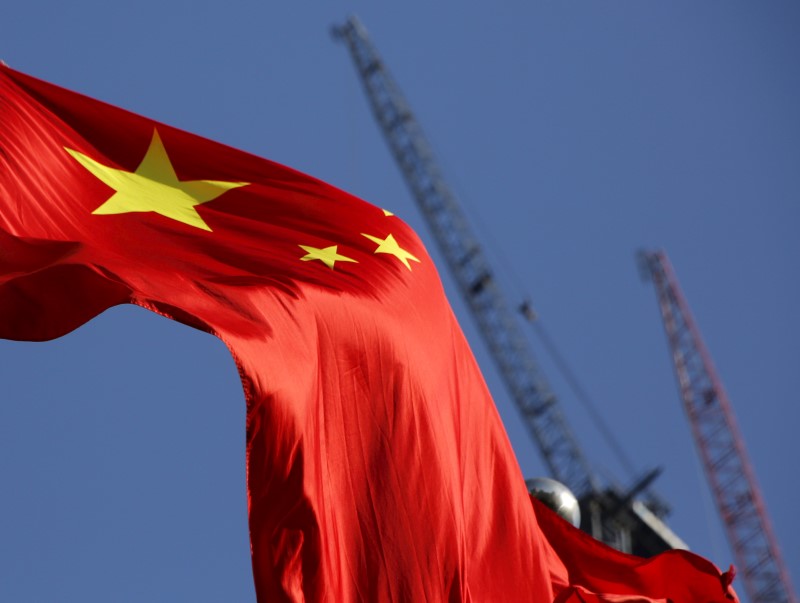Intel stock spikes after report of possible US government stake
Investing.com - Rising liquidity is seen supporting sentiment around Chinese equity markets, but concerns remain around the trajectory of the world’s second largest economy, according to analysts at BofA Securities.
In a note, the bank said that recent client meetings have revealed that investors believe a current rally in A-shares -- or stocks of companies based in mainland China -- will likely continue in the near to medium term.
"This is in part due to improving liquidity," the analysts said, adding that many fixed-income investors -- such as insurance firms -- are allocating a much bigger share of their investment in equities given low bond yields.
But worries are still swirling around the possible effect of elevated U.S. tariffs on China. Despite a fragile -- and now extended -- truce between the two countries over trade, fears remain that "additional volatilies" in this relationship could crop up because of possible levies related to Russian oil purchases, the BofA analysts said.
"Uncertainties around whether recently modified reciprocal tariffs are in addition or inclusive of existing rates in places like Vietnam has also created confusion about [the] impact to corporate profits," the strategists wrote.
Meanwhile, there has been debate around whether a downturn in Chinese exports to the U.S. could weigh on future growth. Goods sent to the U.S. from China dropped by more than 21% last month versus a year ago, although total exports rose by more than anticipated.
Some investors argued that China’s eventual tariff rate will not differ significantly more than other Asian economies, and could lead to a potential reshoring of manufacturing back to mainland China from Southeast Asia in the future. Others, however, flagged that current tariff impact calculations are based on "a static snapshot of recent trade composition, which could underestimate the long-term impact, especially for goods with limited substitutes."
Overall, the analysts said investors have agreed that China’s growth momentum will weaken in the second half as front-loaded exports from earlier this year wane and domestic demand stays muted.
At the same, a protracted property crisis, which has now weighed on China’s economy for multiple years, is seen dragging on at least until the end of 2025, the analysts said.
Some observers have suggested that Beijing may need to roll out more stimulus measures in order to bolster the economy in the months ahead. But the BofA strategists said most of its clients believe the likelihood of further stimulus is low due to broadly resilient growth in China in the first six months of the year.
